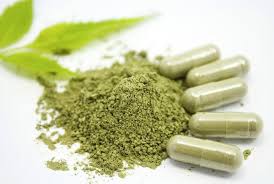Herbal farming improving socio-economic status of Kanchanpur women
 Kanchanpur / Oct 20: A group of women engaged in the herbal farming at Beldandi in Shuklaphanta Municipality in Kanchanpur district has been achieving economic independence thereby uplifting their socio-economic status since their herbal farming began to thrive.
Kanchanpur / Oct 20: A group of women engaged in the herbal farming at Beldandi in Shuklaphanta Municipality in Kanchanpur district has been achieving economic independence thereby uplifting their socio-economic status since their herbal farming began to thrive.
They have become a veritable backbone of subsistence herbal farming in their locality which is suitable for producing various herbal products of medicinal value.
The seven groups of women consisting 40 entrepreneurs have planted Peppermint (locally known as Mentha) across 2 bigha of land and reaped Rs 156,166 within three months of planting.
They have deposited 10 per cent of the total earning- Rs 15,646- in the cash and have distributed the rest of the amount among themselves.
Local farmer Bhotani Chaudhari jubilantly expressed, “Earlier we were dependent on our spouses for pocket money and domestic expenses. But after growing peppermint, we have been able to make money and run the household with our earnings.”
Chaudhari proudly shared that following the herbal farming, they have grown into a strong economic position to contribute to their household affairs and to their husbands for their pocket money.
Another local farmer Rohina Okheda boasted that peppermint farming has been earning them handsome earnings, as a result, they have been a breadwinner in the family.
Most importantly, as Okheda put it, their spouse and their in-laws also started supporting their enterprises once the harvest began to earn them handsome income.
The peppermint is processed along with Asare (Curry Leaves) and Chamomile to produce oil form them which can be used aromatically, topically and internally to address a number of health concerns including boosting energy level and improving skin and hair health.
“A liter of peppermint oil is being sold out for Rs 2,200,” she informed, adding,” We are mulling to further expand peppermint farming .”
Sukuni Chaudhari, another woman in the group, said, “The wild animals would cause problem eating up and destroying the cereal crops before. The animals do not harm the herb cultivation. Moreover, herbs cultivation fetches more income, so we are planning to cultivate herbs on all our land.”
Thirteen women of the group have grown 8.74 kilograms chamomile which was sold at Rs 463 thousand 120. Of this amount, Rs 46,312 was deposited in the group’s fund while sharing the rest amongst themselves. Chamomile sells at Rs 53 thousand per kilogram.
The women associated with the herbs processing plant group have also started growing the chamomile seedlings in the nursery after knowing that it brought a good income. They are planting chamomile in the field where they used to grow cereal crops before.
“We do not have enough to eat for even six months by growing cereal crops. But through herbs farming, we have enough money to run the house for the whole year and we are also able to save some money out of this,” said Soni Chaudhari.
Similarly, local women have earned Rs 132 thousand by processing the ‘Asare’ plant that grows in the Pragati community forest which they have been managing and regulating. The oil extracted from Asare has sold at Rs 4,000 per kilogram.
A non-governmental organization called NEEDS has set up a herb processing plant at an investment of Rs 600 thousand for processing the herbs grown by the women. It has also constructed a shed and drier for drying the herbs.
A revolving fund of Rs 100 thousand has also been set up with support from the organization for improving the socio-economic condition of the women farmers. The women have taken a loan from the revolving fund at a nominal rate of interest and invested the loan amount to start a shop, poultry keeping, pig rearing and livestock farming. RSS
